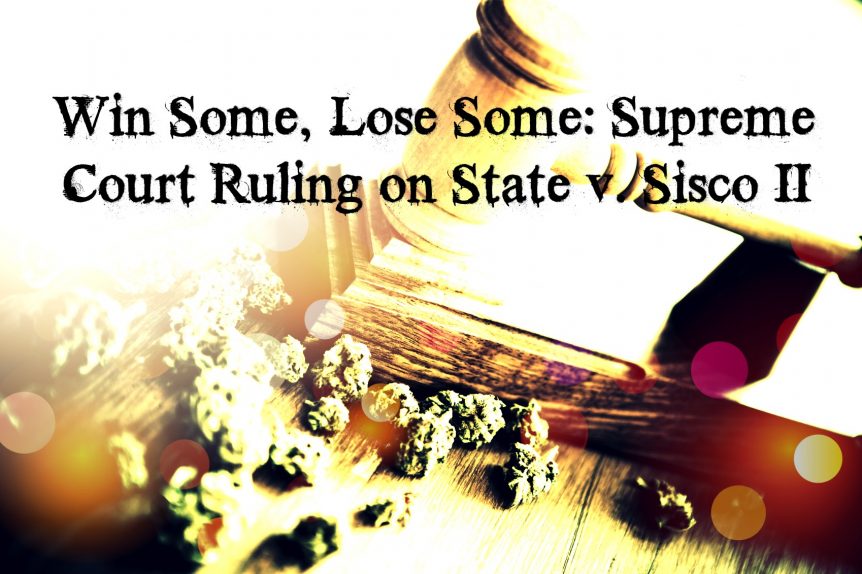
On July 11, 2016, the Supreme Court of Arizona issued their opinion in State of Arizona v. Ronald James Sisco II, in which the Court considered whether or not the odor of marijuana suffices to establish probable cause for issuance of a search warrant, given the adoption of the Arizona Medical Marijuana Act (“AMMA”). Ultimately, the Supreme Court decided that the odor of marijuana alone does, in fact, suffice as probable cause for the issuance of a search warrant unless there are other “facts” that suggest the suspect is authorized by AMMA to use or possess marijuana.
AMMA cardholders should find this ruling concerning. This decision is essentially doing exactly what the Court of Appeals sought to prevent treating AMMA card holders as second class citizens. Inherently, this means, at the point of contact with officers, a medical marijuana user must show their medical marijuana card immediately, or their home may be searched based on odor alone.
In our previous article, we discussed the fact that, in State v. Sisco II, Officers smelled a faint odor of marijuana coming from an apartment complex, and decided to randomly pin the smell to a Unit 18. Upon obtaining a search warrant for Unit 18, Officers found that the unit was vacant. The officers then filed for an amended search warrant to search Unit 20, which may or may not have had a smell of marijuana coming from it (not stated in decision), and, when they entered the Unit, they “avowed that after entering Unit 18, they could better identify the source of the odor.” Upon looking through Unit 20, they found the marijuana operation ultimately leading to Mr. Sisco’s conviction.
Simply put, the Supreme Court has decided that the AMMA does not change the laws surrounding probable cause, which stands in complete contrast to the Court of Appeal decision that smell no longer inherently means a crime has occurred. The Supreme Court rejects the notion that AMMA changes nearly anything, and, as they state in their decision:
Given Arizona’s general prohibition against marijuana possession and use, it is reasonable for officers to conclude that criminal activity is occurring when they see or smell marijuana, thereby satisfying probable cause. In this respect, registered qualifying patients are not denied Fourth Amendment rights or privileges based on their medical marijuana use; they are simply treated like the broader public.
In turn, the Supreme Court rejected the “odor and sight plus” notion that the Court of Appeals suggested be the standard for establishing probable cause, allowing that probable cause does not have the same standard as “beyond a reasonable doubt” or the like. Probable cause only needs to be determined after the totality of the circumstances warrants a reasonable person to believe there is a “fair probability that contraband or a crime is present.” Medical marijuana card holders are now vulnerable to warranted searches by law enforcement.
While it appears that a substantial advancement for marijuana laws has slipped through Arizona’s grasp with this Supreme Court ruling, it is important to continue to stay informed about changing marijuana laws. Marijuana laws continue to be unchartered territory, and the Courts and the public are now struggling with an ever moving target. If you ever find yourself in a situation where you need an attorney, call Castillo Law at 480-206-5204. We are available 24/7 to take your call.

